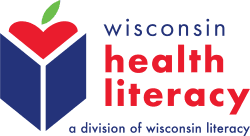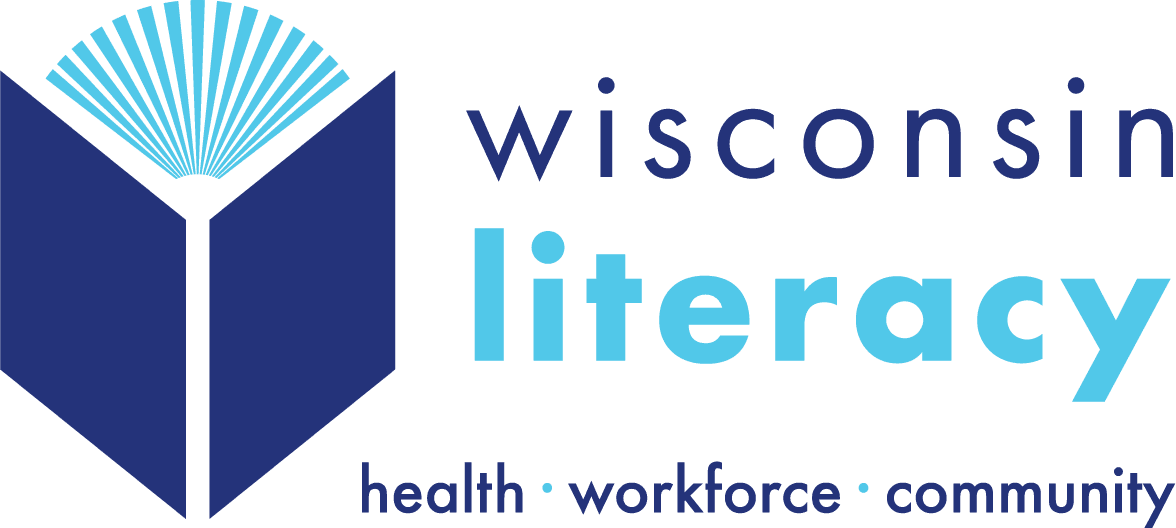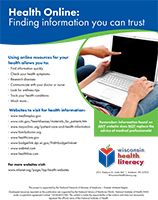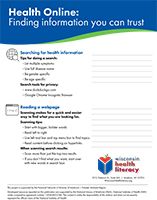Health Online: Finding Information You Can Trust
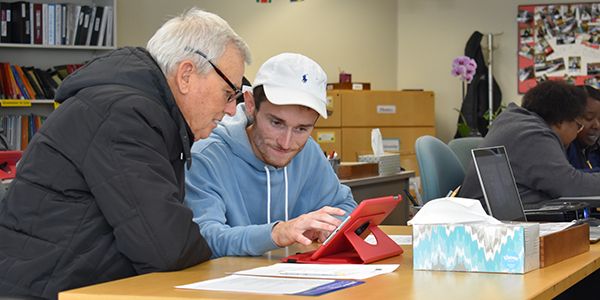
-
Listen to the program broadcast where you’ll hear from:
-- one of our library partners about how our Health Online: Finding Information You Can Trust workshop impacted their community; and
-- Dr. Bethany Howlett about online information related to COVID and resources that can help you.
Health Online: Finding Information You Can Trust is an educational program developed by WHL to help individuals better access, identify, and use reliable health information on the internet.
A total of 62 collaborative 'Health Online' community-based workshops and 9 'Health Online' train-the-trainer sessions were facilitated throughout Wisconsin, since 2018. The program has completed two phases. Final reports are listed below.
Program components:
1. WHL facilitated 25 digital health literacy workshops for consumers with a focus on underserved communities. Participants use iPads or Chromebooks provided by Wisconsin Health Literacy to follow along and try web searches during the workshop.
Discussion topics include:
- Initial search – discovering sources of reliable information
- Scanning information on webpage – scanning online information in order to find quick facts and relevant information
- Evaluating sources – how to spot unreliable sources, determine the purpose of a webpage, and evaluating a site based on accuracy, authority, bias, currency, and coverage
- Finding sites in other languages
- Navigating mobile vs. computer – learning the differences in layouts
- Internet Access – addressing access for patients, caregivers, students and location-based challenges
- Other digital health tools – health portals, wearables, and apps
2. The second project component involves providing trainings for library staff, who work with underserved populations, on how to effectively help patrons find trustworthy health information.
Discussion topics include:
- Digital health literacy – what is it?
- Community-based health online workshop content
- Initial search – discovering sources of reliable information
- Scanning information on webpage – scanning online information in order to find quick facts and relevant information
- Evaluating sources – how to spot unreliable sources, determine the purpose of a webpage, and evaluating a site based on accuracy, authority, bias, currency, and coverage
- Finding sites in other languages
- Navigating mobile vs. computer – learning the differences in layouts
- Internet Access – addressing access for patients, caregivers, students and location-based challenges
- Other digital health tools – health portals, wearables, and apps
- Community member feedback – review community-based Health Online workshop data (pre and post-survey statistics) to get a better understanding of community members knowledge of finding health information online
- Communication techniques – educating others how to use the internet to find health information
- Implementing health online workshops in your community
- National Network of Libraries of Medicine resources
Visit the 'Health Onlin'e web curriculum developed by Wisconsin Health Literacy: https://wihealthliteracy.wixsite.com/healthonline
Funding was provided by the Network of the National Library of Medicine.
This program is no longer grant funded. WHL may still be able to provide programming for a fee. Please contact us for more information.
Sign up for our Health Literacy Digest to get our latest news.
